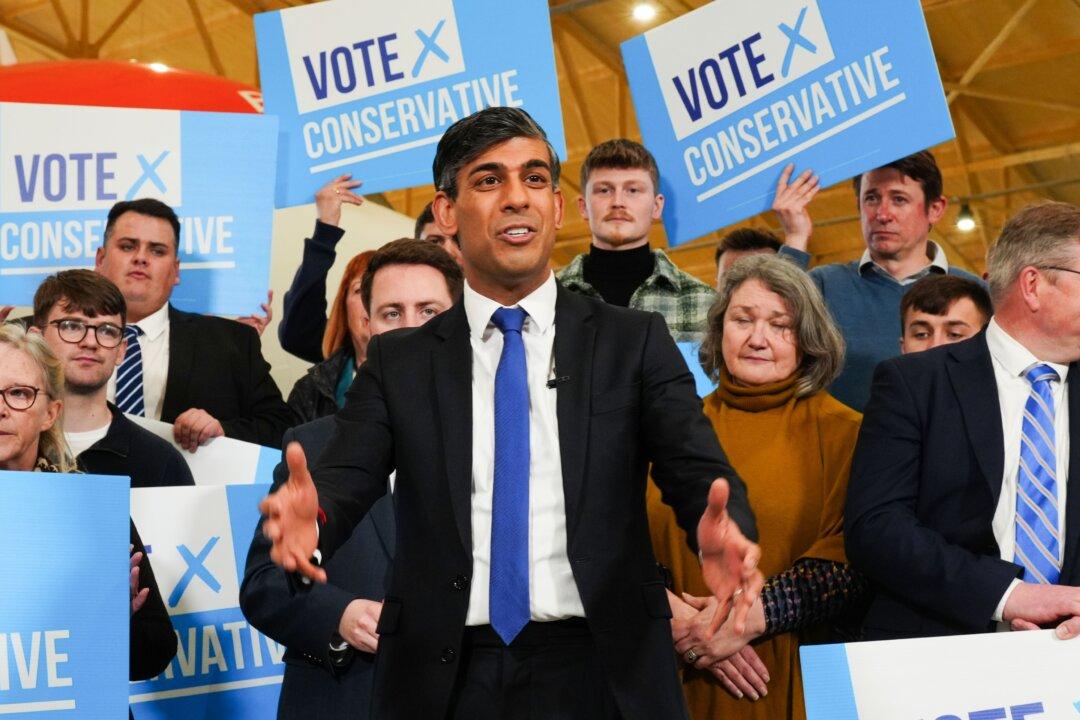The UK’s Health Secretary Sajid Javid said on Sunday that he believes it’s unlikely the government will ever consider mandating COVID-19 vaccines for the general population.
His comments came as Austria announced plans to make the shots compulsory and demonstrators took to the streets across Europe protesting tighter restrictions.




